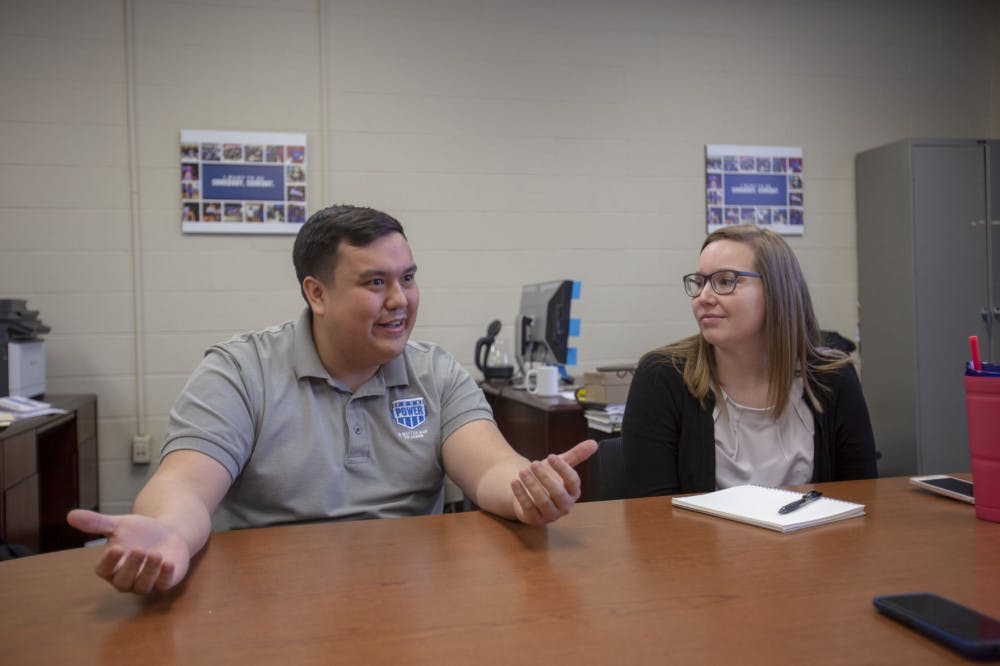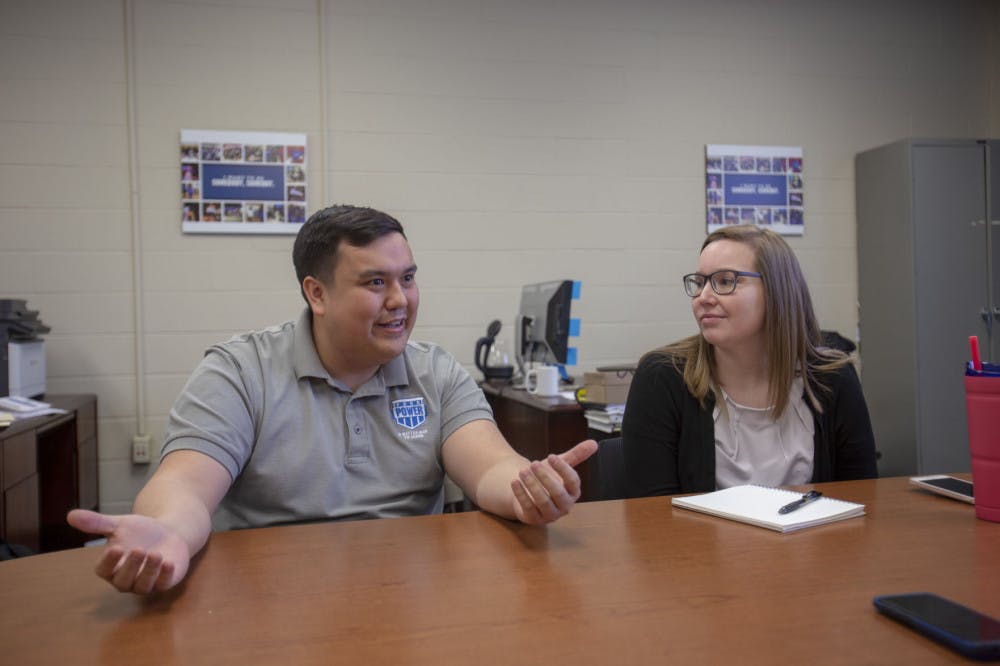
Chris Xa, a representative for Peer Power speaks with reporters for the Daily Helmsman on Tuesday. Peer Power is a collaboration between the University of Memphis and Shelby County Schools to foster an environment of success for both the coaches and students.
The University of Memphis and the Peer Power Foundation, a local nonprofit organization, partnered to form the Peer Power Institute, an organization aiming to assist Shelby County students by hiring U of M students and placing them in public schools to mentor younger students.
Chris Xa, the director of research for Peer Power, said the “new Memphis Model†allows for a better education for Shelby County students.
“Here at Peer Power, we are breaking the traditional mold of education, and we explore ideas that have been proven by data,†Xa said. “Peer Power paves the way for really cool and innovative ideas within education. Here, we get to learn from our mistakes. We get to grow personally.â€
The organization already has employed over 600 former U of M students since its inception and currently employs 150, with more room to expand.
Peer Power, first established in 2014 and implemented at Whitehaven High School, improved the graduation rate from 77 percent to 91 percent. In addition, Whithaven students received $130 million in scholarships.Â
Since the founding of the program, both East High School and Kingsbury High School became part of the program and have seen an increase in graduation rate and test scores.
With the use of their “success coaches,†the student to adult ratio in Shelby County schools decreased from 30:1 to 10:1. Xa said this increases the effectiveness in classrooms by giving less responsibility to teachers and providing a smaller learning environment for students.
“The whole student-to-adult ratio is a stat that we pride ourselves in.†Xa said. “It helps to be able to cater instructions for students. It also allows teachers in particular to be a lot more effective in what they are passionate about, and that is to teach kids.â€
Peer Power uses one-on-one interaction to motivate the students with the aim to create the future productive members of society. One of the benefits is students are more frequently asked how their days are, which Xa said only one in four were asked before.
“Think of that, for a young kid who doesn’t get asked literally anything about their day at school,†Xa said. “How can you foster a healthy learning environment if we don’t even know what that environment is? This causes a disconnect on relationships. That’s why it is important to have a one-on-one relationship with coaches.â€
Marygrace Hemme, the director of academics and training of Peer Power, explained how Peer Power implements a one-on-one style of learning is effective.
“We often think of education as a one-size-fits all model in our society,†Hemme said. “We are all individuals. We all have individual life histories, stories and preferences. When you start to get to know someone, that is really when the foundation of learning begins.â€
Hemme said students have more trouble learning when they do not know about their instructor.
“We usually don’t care about what we learn until we know who is teaching us,†Hemme said. “In order for students to have an investment, it is helpful for someone to invest in them first. When you have someone willing to work with you one-on-one who takes the time learn about your histories and experiences, that allows the educator draw examples relevant to your interests.â€




